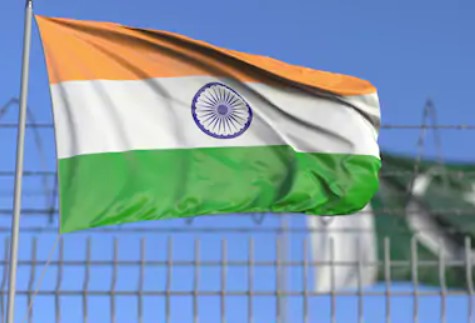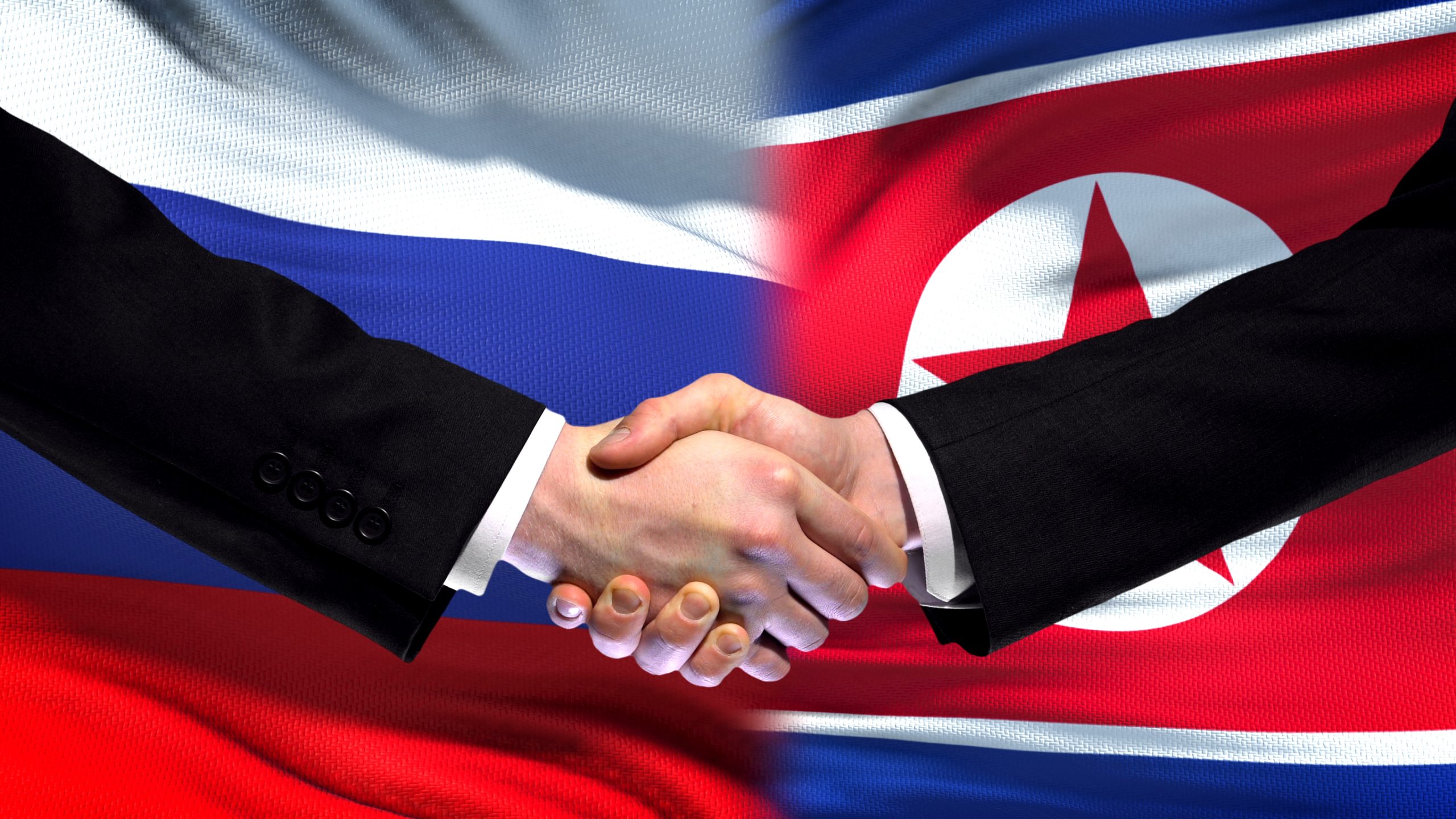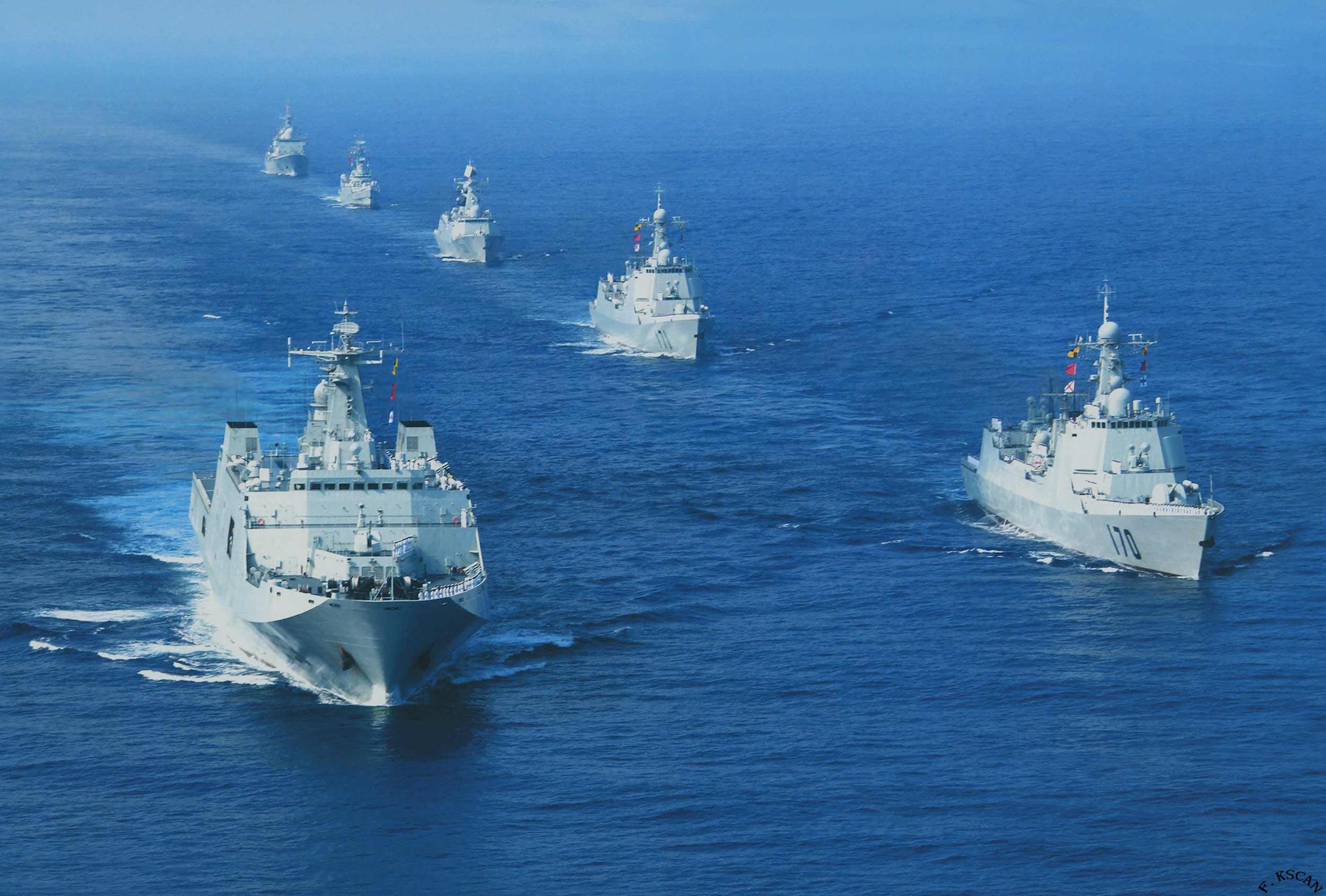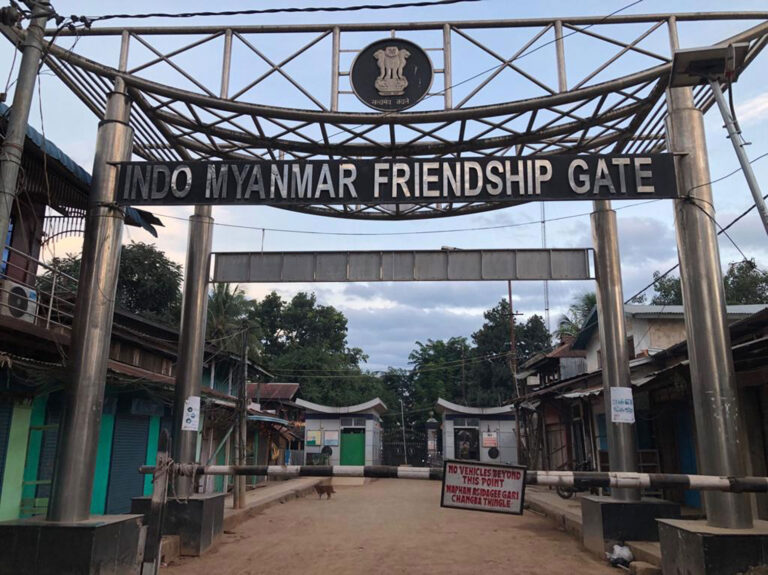
DETERRENCE OPTIONS TO PREVENT PAKISTAN’S CONTINUING PROXY WAR – PART II
Mon, 07 Dec 2020 | Reading Time: 10 minutes

Part II – Taming Pakistan: Options to Stop his Hybrid/Proxy War
(Link for Part 1 – https://chanakyaforum.org/deterrence-options-to-prevent-pakistans-continuing-proxy-war-part-i/ )
Part I covered the historical perspective of partition, international and regional security environment, the interventionist role of China in South Asia, and analysed if Pakistan will ever stop waging its proxy/hybrid war. In this Part, we will highlight the external options/methodologies to coerce/persuade/influence Pakistan to stop persecuting a proxy war against India. This comprehensive, top-down multi-disciplinary strategy needs to be implemented resolutely over a sustained period of time.
Pakistan’s Changing Manoeuvres: Peoples Hybrid Movement. The more visible form of proxy war waged by Pakistan is the kinetic one with numerous acts of terrorism in J&K and also across the hinterland. The concept of ‘keep the kettle boiling’ and ‘war of a thousand cuts’ are frequently bandied as his concept of operations. It is to be noted with concern, that on analysis, Pakistan has adopted multi-domain (MD) hybrid war using both kinetic and non-kinetic means with a larger focus on the cognitive and non-cognitive domains of PDIME (political, diplomatic, informational, military, economic), with emphasis on IIO and PSYOPS ever since 2008/09. Pakistan has realized that wars and terrorism alone, has not achieved results, but earned the country lots of ignominies, which is being exploited by India. So, Pakistan’s focus has turned to a sinister political/ societal/ religious/ communal upheaval in Valley and mainland India. Sporadic acts of violence/ terrorism will continue as hitherto, which can reach a surge of discontent to paralyse and de-stabilise Valley (and preferably rest of India), providing the impetus/chain reaction to force India to negotiate the status of J&K with Pakistan. Pakistan appears to have taken a leaf out of Gene Sharpe’s essay ‘From Dictatorship to Democracy, A Conceptual Framework for Liberation[i]‘ which was written in 1993, to support the Burmese revolution to overthrow the dictatorship. It was thereafter used by many intifadas and colour revolution leaders as a guide for their causes. Pakistan also has the MD support including international clout of big brother China with it to provide the necessary catalyst as also stymie Indian and international actions/sanctions against Pakistan.
This nuanced change of strategy is an attempt to out-manoeuvre world’s intolerance for terrorism (post 9/11), successes of counter-infiltration/counter-terrorism (CI/CT) operations (synergy between Rashtriya Rifles (RR), CAPFs, JKP, intelligence agencies and Unified HQ), the Anti-Infiltration Obstacle System (AIOS) (2004), normalcy (Assembly elections and Parliamentary elections), and the game-changing abrogation of Article 370 and 35A. However, our internal dissensions provide the necessary ingredients/catalysts to Pakistan to reinforce and exploit. During the last year or so, Pakistan has picked up prickly/tricky issues like the Khalistan Referendum and Kartarpur Corridor in Punjab, CAA (Citizens Amendment Act) and NRC (National Registry of Citizens), constant fake news/rumours about minorities (emphasis on communal contours), to create a potent destabilizing cocktail, which can be utilized to achieve Pakistan’s political aims.
India’s Modification to Policy of Strategic Restraint, thus Enhancing Deterrence Reputation. The surgical strikes, Balakote and current firm stance along the LAC have already signalled a change/modification to our strategy. However, it will take some time to develop a deterrence reputation (like Israel, China, USA), as possessing capabilities and capacities are not enough if India is perceived as a soft state or at best a diffident regional power. In this connection signalling a ‘one-off’ strike in the post-strike statements may have taken some sheen of our deterrence reputation as also emboldened Pakistan to quickly recover and carry out quid pro quo actions more to satisfy its own populace[ii]. India has introduced an element of unpredictability and Pakistan can no longer be sure about India’s likely response. India has demonstrated to Pakistan and the world that the rules of the game have changed. India must continue to be pro-active in framing responses to terrorist incidents with their origin on Pakistani soil, to raise Pakistan’s cost for waging a proxy war against India to eventually make it prohibitive.
Discredit Pakistan Army/Reduce its Salience in Pakistan Polity. Our National Security Strategy and foreign policy objective must aim at discrediting the Pakistan Army in the eyes of their people, and even within the international community aligned towards liberal democratic world order. The focus needs to be on the ‘Deep State’. Recently the opposition led by ex-PM Nawaz Sharif has started calling out the Army and the present Government. This is finding increasing traction in Pakistan. The clashes in Karachi and the increasing restiveness of the Sindhis, Balochis amongst others including the Punjabis is a clear indication of the average Pakistani’s disillusionment with the ‘Deep State’. Now is, therefore, a very opportune time, as the Western world is already hostile to a belligerent and illiberal China and will not take kindly to Pakistan’s close alignment with China. The Pakistani Army has graduated to conducting a hybrid war using calibrated use of terrorism, supported by strategic deterrence, allowing it to retain the strategic advantage of bleeding India. It, therefore, has no reason to take a retrograde step towards the failed model of waging a conventional war against India. Based on the premise that Pakistan/its Army is unlikely to change its policy of sponsoring terrorism, India must hurt the principal architect of Pakistan’s Kashmir policy, the Pakistani Army. India needs to create requisite leverages against the Pakistani Army to curb terrorism. We have already signalled that our armed forces will neutralise terrorists not only inside India but also target the perpetrators of terrorism across the LoC. It is necessary to inflict punishment on the posts across the LoC that are an integral element of Pakistan’s terrorist actions against India. Pakistani military retaliation to the same, and raising of the existing threshold of weapons and quantum of force employed along the LoC is to be expected. India possesses the ability to gain a military advantage over Pakistan along the LoC, irrespective of the level of escalation, something that had been accomplished in the past, before the ceasefire in 2003. Understanding of the escalation ladder and taking adequate measures is a given. There are lines which Pakistan will not cross, despite disproportionate punishment by India, as repeated failures in conventional wars have proved it disastrous. India must keep harping on a declaratory policy of escalatory response to acts of terrorism, and launch a vigorous IIO (Information Influence Operations) and PSYOPS (psychological operations) in Pakistan. Shaping perceptions in Pakistan of maximum damage and casualties to the Pakistan Army will help both internally and externally. To further consolidate, our strikes across the LoC need not necessarily be reactive, but slowly be preemptive and punitive. With time, infrastructural damage and increasing body bags, the Pak Army will have no choice but to close the terror tap. When applying our escalation policy, we must safeguard and secure our villages and people living close to the LoC, especially from artillery fire. Civilian suffering can be obviated by relocating villages in the direct line of fire of the Pakistan Army (mostly on the Pakistani side of mother ridge within 500 to 1500 meters of the LoC) by acquiring this land at generous terms and facilitating the resettlement of the villagers. Further, the creation of additional family bunkers along the IB sector in J&K may also have to be considered, given experience of ceasefire violations by the Pakistan Army and its indiscriminate targeting of villages. These steps would help sustain the current policy without adversely affecting the local population.
Brand Pakistan as a Terrorist State. Given Pakistan’s pathological hatred towards India and its proxy war, and in consonance with the resolute stance taken especially by our Armed Forces along the LAC, it is time to officially name Pakistan as a ‘terrorist state’. With India soon to become a member of the UNSC, this tag should be pitched within the UNGA and UNSC. With Chinese reputation at an all-time low, the move while unlikely to succeed as yet will dent Pakistan’s reputation and morale, especially within Pakistan greatly. However, before that, the Indian parliament must pass a unanimous resolution branding Pakistan as a terrorist state.
Other Measures against Pakistan. India can deal many a hand and has done it in the past either in isolation or sporadically, always with the hope that Pakistan being our immediate neighbour will eventually turn around and mend its ways. It is time to accept that Pakistan in any state will always conduct an MD proxy/hybrid war against India. Some of the measures are listed below with are well known, and many are already being acted upon. What should change now is to carry out a relentless multi-pronged, MD attack short of a conventional military war till Pakistan is forced to turn the tap off, and never let off the pressure till such time our CNP asymmetry, deterrence capability, capacity and reputation, will make it improbable for Pakistan to conduct a proxy/hybrid war. This includes our internal, external and soft power status regionally and internationally. Some of the salient objectives should be: –
- Diplomatically isolate Pakistan for its rogue actions. No talks or relations with Pakistan till it stops proxy/hybrid war against India (discretely keeping lines of communication open to exploit any change of stance or opportunity).
- Choke Pakistan economically by ensuring blacklisting by FATF (Financial Action Task Force), and by preventing loans from world economic institutions like World Bank and IMF, till Pakistan stops state-sponsored terrorism. This is already happening.
- Isolate Pakistan within South Asia and shift emphasis to other linkages like BIMSTEC, SCO, BRICS, QUAD.
- Overtly and covertly support the movement in Balochistan and Gilgit-Baltistan. Consider allowing both to form ‘government in exile’ in India. An emerging fault line with immense potential is the concept of ‘Pashtunistan/Pakhtunwa’ which has had a surprising resurgence at the back of a peaceful Pashtun nationalist movement, threatening Pakistan’s tenuous hold in KPK adding fuel to the vision of Pashtunistan. It is important to note that Pashtuns embody the world’s largest (patriarchal) lineage ethnic group with a population of approximately 40 million astride the Durand Line, which the Pashtuns do not recognize. We should, however, not be seen supporting any form of terrorism/terrorist actions anywhere especially in Pakistan.
- Support Afghanistan on its stand on the Durand Line, which will additionally provide a boost to the Pakhtunwa movement.
- Along with the international community, ensure that after the withdrawal of the US from Afghanistan the country should not descend into civil war. Our assets built assiduously since 2002 need to be protected.
- Create infrastructure for full utilisation of the water provided for in the 1960 Indus Water Treaty, which by itself will create panic within Pakistan being an acute water scarce nation. This can be done without any re-negotiation of the Treaty. If pushed seek re-negotiation of the Treaty.
- Conduct covert operations to neutralise terrorist leaders in Pakistan, as Pakistan treats them as strategic assets, which also will discredit the Pak Army. International approbation will be nil/muffled as most of them are already categorised as terrorists by the UN. To those who worry about tit for tat action by Pakistan, one can respond that there are no wanted or designated terrorists on Indian soil. It must be pointed out that this must be done at opportune moments and must be timely, as historically such actions have not given the desired results (Israel has periodically carried out neutralisation missions with not much to show for it). However, over a while, Israel’s stand has been vindicated as the Arabs themselves have grown tired of Hezbollah, and are gradually aligning with Israel for geopolitical compulsions.
- Exploit Geo-Political Trends. Exploit the global geo-political trends like in the Middle East, with the traditional Pakistan friends Saudi Arabia, UAE and numerous OIC nations already cooling off and strengthening their bonds with India. The emerging alignment of Pakistan with Turkey and Malaysia is more of a reaction to the troubled relations which Pakistan is facing with other Middle East states. Realpolitik will finally dictate relationships, especially with a stronger, stable, richer, populated, emerging New India which believes in strategic autonomy and views relations in a principled way. The same can be said of EU and other democratic nations who have a majority vote/weightage in all global institutions/forums.
- Probable Win-Win India-China Situation at Pakistan’s cost. In the future, which is a possibility in the ever-changing geostrategic environment, convince China that her relations with India are far more beneficial both strategically and economically than with Pakistan. This will further ensure security and vibrancy of BRI and CPEC, especially if India agrees to join it. While sounding unlikely now, would be a win-win situation which PM Modi initially envisaged. Pakistan’s move to a democratic set-up with no interference/intervention by her Army will further consolidate the situation and bring stability and peace to the region.
- The window for Conventional Conflict between Nuclear Powers. Pakistan boasts of full-spectrum capability (which experts doubt) to include tactical nuclear weapons. India needs to announce and convince the people of Pakistan that this is a bogey and a window for punitive conventional deterrence exists, which India will exercise if red lines are crossed. The people are increasingly aware of the wide disparity and asymmetry between the two nations, as also how the international community views both nations.
- Parliament Representation of People of PoK and Gilgit Baltistan. Start asserting legal right over PoK and GB by filling vacant seats of the Lok Sabha and UT of J&K assembly (once re-formed), reserved for PoK and Kashmiri Pundits. India has more than 36000 families of PoK and six lakh Kashmiri pundits. India should give them the opportunity of contesting these seats and become the voice of entire POK and GB.
- India’s Dilemma: Pakistan Democratic Farce and Ambiguous Control. The current Imran Khan government which was installed by the Army has by everybody’s reckoning lost the trust of the Army and the people. Whom to talk to in Pakistan has always been an issue with democratic India. The dilemma is that the Deep State (ISI and Army) runs policy and conducts the proxy war but in the farce of a democracy called Pakistan, who and how to negotiate? Experience with a military dictator or democratically elected PM has not achieved any results. Pakistan has to be coerced to accept India’s terms and stop the proxy war.
- All Terrorists are Bad and need to be Neutralised. Persuade and if required put international pressure on Pakistan to act against all terrorist groups for its security and not selectively, especially groups involved in terrorist acts in India like Deobandi groups like JeM, HuM, Ahl-e-Hadis groups like LeT and Jamaat-e-Islami supported HM.
- Conduct of Special Operations. Without mincing words, India must conduct hybrid/special operations, over and above Special Forces operations. These imply developing and employing capabilities beyond the armed forces and exploit the complete sub-conventional spectrum available. Terrorist group leadership is one set of targets that must remain within the operational spectrum of such capacity development.
- Exploit the Fundamental Differences in Interpretation of Islam[iii]. In Pakistan, Islam has so closely interwoven into the social fabric that it has assumed a life of its own. Surprisingly the pertinent question is; what type of Islam? Islam is not monolithic and different ‘madhab/mazhab’ as well as sects advocate different interpretations of Islam. All consider their interpretation as authoritative and regard the rest as either non-Islamic or un-Islamic. Even within sects, there are major divisions like between the ‘Deobandis and Barelvis’. Even if Muslims belonging to the same mazhab (Hanafi in this case), their approach to Islam varies to the extent that they consider the other non-Muslim! It may not be wrong to say that in Pakistan ‘Islam has become an obsession, a pathology’. Ironically, Pakistanis find it difficult to define their country in non-religious terms as Islam has become its marker. This can be exploited to create dissension and instability within Pakistan, to stop infiltration and Kashmir centric operations.
- Carry the Punitive Measures in the High Seas. After the Mumbai terrorist attack and as part of the expanded punitive actions we need to accost and inspect Pakistan maritime vessels for contraband and warlike stores, including terrorists, boarded for a probable terrorist action. Illegal items and warlike stores can always be found, and the ships/vessels can be impounded for longish periods. This will highlight Pakistan’s nefarious/terrorist activities having reached even the high seas. Deniability of any mischievous designs is a double-edged weapon, which two can play.
Out of the Box Suggestions. It has been proved that some different, out of the box and even bizarre ideas which on immediate examination seem unacceptable or inappropriate, but on implementation have found great success. Some are listed below.
- Near the LoC identify and create some duty-free areas (we can examine the crossing points). In those zones, approximately 3km deep and 15-20 km wide, create entertainment zones showcasing the liberal and developed society in India. Allow any Pakistani to enter and exit without a visa. No income tax, no capital gains tax. The jurisdiction will however be Indian.
- In a fairly short period (1-2 years) settle locals belonging to UT of JK from security forces (CAPF, Armed Forces, JKP), Kashmiri Pundits, locals from South of Pir Panjal (talking of a large number of at least one lakh) in the Valley in model villages. These can be gradually expanded and additional villages settled. Each is provided pension, appropriate land for agriculture and a house, a la Israeli settlements. Being from within the UT any condemnation/protests can be countered.
References:
[i] ‘From Dictatorship to Democracy, A Conceptual Framework for Liberation’ by Gene Sharp; available online and print from numerous sources including Amazon
[ii] ‘How to counter Pakistans Proxy War’ by Brig Gurmeet Kanwal, The Economic Times, 08 Oct 2018, Link – https://economictimes.indiatimes.com/news/defence/longread-how-to-counter-pakistans-proxy-war/articleshow/66119254.cms
[iii] ‘The Politicisation of Islam’ by Dr Ashok K Behra in the CDM publication by the Pakistan Study Forum in Mar 2020
Disclaimer
The opinions expressed in this article are the author’s own and do not reflect the views of Chanakya Forum. All information provided in this article including timeliness, completeness, accuracy, suitability or validity of information referenced therein, is the sole responsibility of the author. www.chanakyaforum.com does not assume any responsibility for the same.
Chanakya Forum is now on . Click here to join our channel (@ChanakyaForum) and stay updated with the latest headlines and articles.
Important
We work round the clock to bring you the finest articles and updates from around the world. There is a team that works tirelessly to ensure that you have a seamless reading experience. But all this costs money. Please support us so that we keep doing what we do best. Happy Reading
Support Us




















POST COMMENTS (2)
Neci
Anil Bakshi